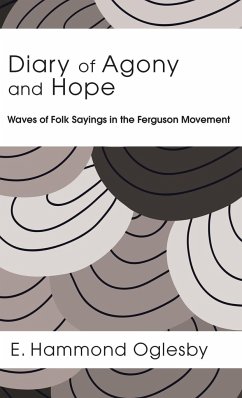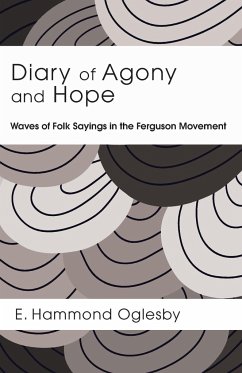
Voices on the Corner
Versandkostenfrei!
Versandfertig in 1-2 Wochen
15,99 €
inkl. MwSt.
Weitere Ausgaben:

PAYBACK Punkte
8 °P sammeln!
Harold J. Recinos is the son of a Guatemalan father and Puerto Rican mother who at age twelve was abandoned to New York City streets. After living on the streets between the ages of twelve and sixteen, Recinos met a Presbyterian minister who had discovered the God of the oppressed while active in civil rights marches in the 60s. The minister took Recinos into his family, helped him kick a heroin habit, and enrolled him in school. Voices on the Corner documents life at the edges of American society in ways that are both personal and universal in the human experience. The poems provide a fresh i...
Harold J. Recinos is the son of a Guatemalan father and Puerto Rican mother who at age twelve was abandoned to New York City streets. After living on the streets between the ages of twelve and sixteen, Recinos met a Presbyterian minister who had discovered the God of the oppressed while active in civil rights marches in the 60s. The minister took Recinos into his family, helped him kick a heroin habit, and enrolled him in school. Voices on the Corner documents life at the edges of American society in ways that are both personal and universal in the human experience. The poems provide a fresh insight into the existential experiences of people excluded from mainstream society. In a celebration of dazzling texture, poems here address issues of police brutality, gun violence, immigrants' rights, the blighted urban landscape, death, hunger, religious violence, drug addiction, pluralism, spirituality, family life, hope, and the pulse of everyday life in overlooked places. ""Poetry reveals the depth of the human condition in ways that simple academic dissertations fall short. Dr. Recinos, a renowned academic, takes us beyond Ivy Towers to wrestle with the battered soul that searches for a liberating spirituality. His Voices from the Corner provides us with living waters that refresh humanity's thirst."" --Miguel A. De La Torre, Professor of Social Ethics and Latino/a Studies, Iliff School of Theology ""Recinos offers an aesthetic account of urban life in the United States. His poetry takes the form of vignettes that raise the everyday faith in Latino/a communities who continue to struggle as outsiders within the dominant narrative of American identity. This book is a powerful account of the excluded in our midst that will both challenge and inspire the reader."" --Michelle A. Gonzalez, Professor of Religious Studies, University of Miami Harold J. Recinos is professor of Church and Society at the Perkins School of Theology at Southern Methodist University. Among his recent publications are Good News from the Barrio: Prophetic Witness for the Church (WJKP, 2006), Harold J. Recinos and Hugo Magallanes, eds. Jesus in the Hispanic Community: Images of Christ from Theology to Popular Religion (WJKP, 2009), and Harold J. Recinos ed. Wading Through Many Voices: Toward a Theology of Public Conversation (Rowman and Littlefield, 2011).














